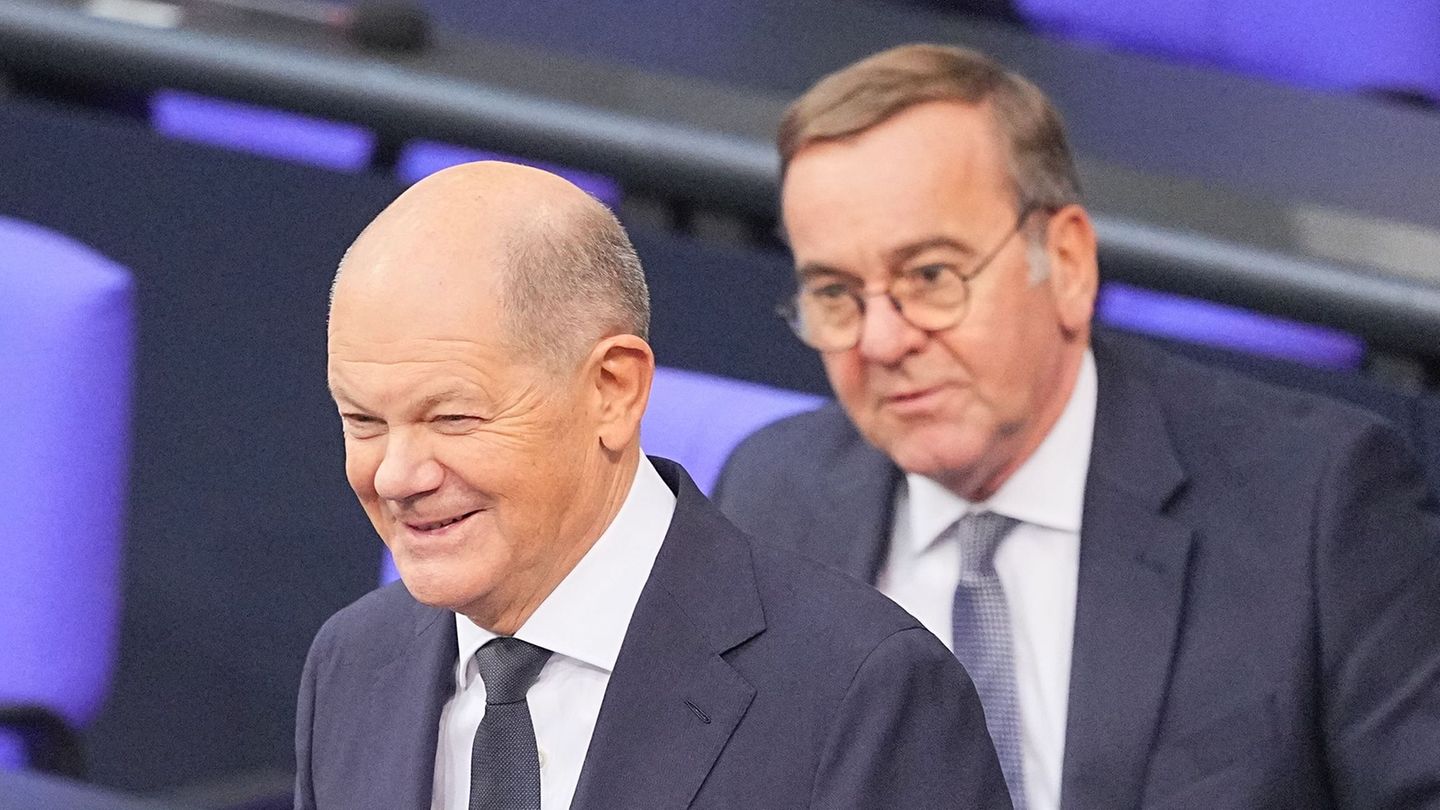ARD Germany trend
Survey: SPD at 14 percent – a lot of support for Pistorius
Copy the current link
In the ARD Germany trend, the SPD is slipping further, the Greens are catching up with the Social Democrats. If citizens could decide on the SPD’s K question, the result would be clear.
In the midst of the debate about its candidacy for chancellor, the SPD continues to lose support. According to the new ARD Germany trend, Chancellor Olaf Scholz’s party would only get 14 percent if there were a federal election on Sunday (minus 2 percentage points compared to the beginning of November). This means that the Social Democrats are now 19 points behind the Union, which remains the strongest force with 33 percent (-1).
At the same time, six out of ten respondents (60 percent) in the Infratest-dimap survey are of the opinion that Defense Minister Boris Pistorius would be a good candidate for chancellor for the SPD. In contrast, only one in five (21 percent) considers Scholz to be a good SPD candidate for chancellor. The SPD has still not officially decided who will lead it in the new election on February 23rd.
After Economics Minister Robert Habeck was chosen as candidate for chancellor, the Greens gained two percentage points and are now on par with the SPD in the German trend at 14 percent. At 4 percent (-1), the FDP would be below the mandate threshold. The AfD improved slightly to 19 percent (+1) and would therefore be the second strongest force in the Bundestag. At 3 percent, the Left would remain below the five percent hurdle. Like two weeks ago, the Sahra Wagenknecht Alliance (BSW) achieved 6 percent.
Infratest dimap surveyed 1,318 eligible voters for the Germany trend from Monday to Wednesday of this week. If the Union actually leads the next federal government, almost one in three eligible voters (31 percent) would like the SPD to be their coalition partner. When asked openly, one in six people (16 percent) are in favor of a coalition with the AfD. Almost as many (15 percent) vote for a coalition with the Greens.
Election surveys are generally always subject to uncertainty. Among other things, weakening party ties and increasingly short-term voting decisions make it more difficult for opinion research institutes to weight the data collected. In principle, surveys only reflect the opinion at the time of the survey and are not predictions of the election outcome.
dpa
Source: Stern
I have been working in the news industry for over 6 years, first as a reporter and now as an editor. I have covered politics extensively, and my work has appeared in major newspapers and online news outlets around the world. In addition to my writing, I also contribute regularly to 24 Hours World.




